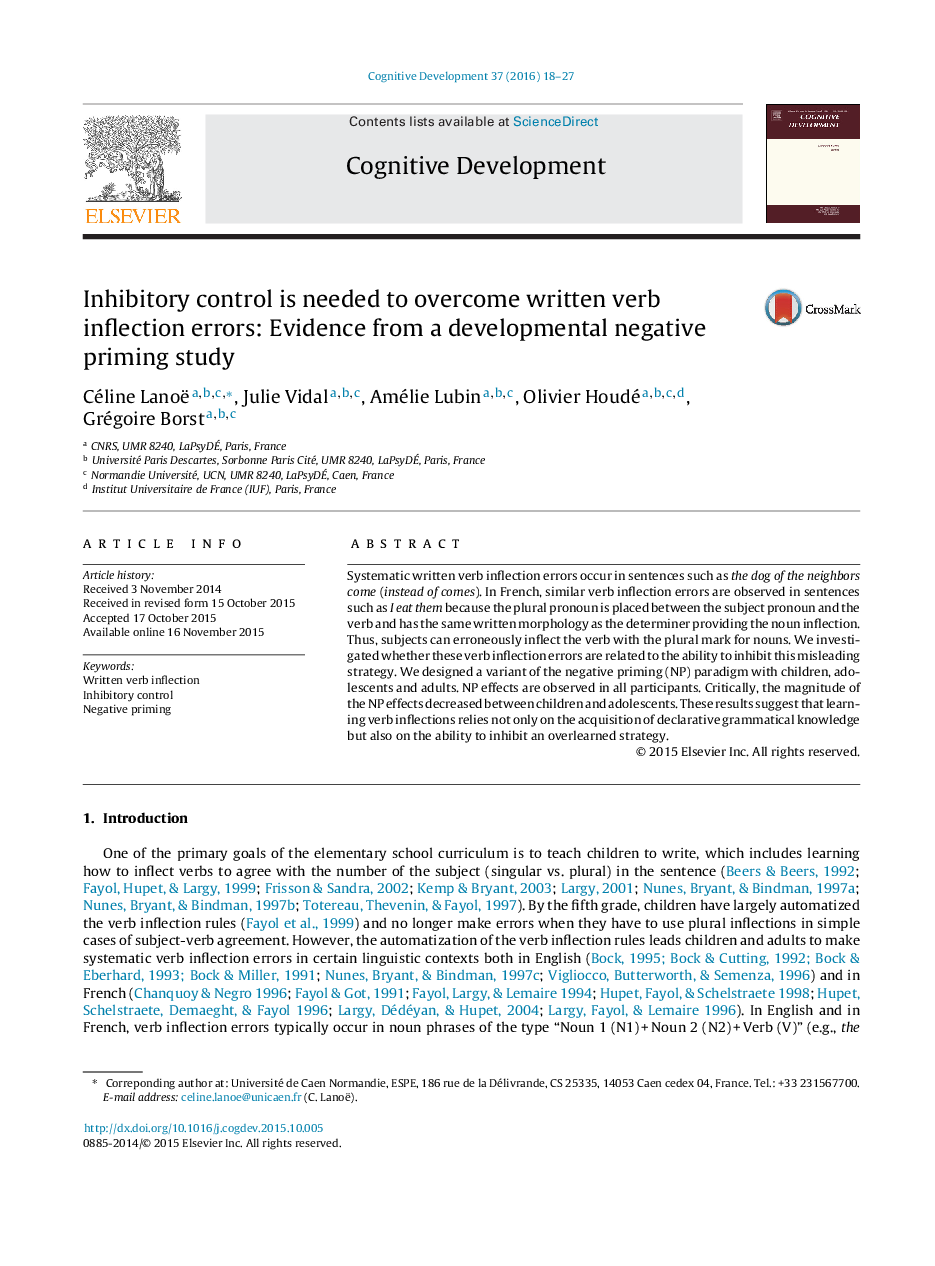| Article ID | Journal | Published Year | Pages | File Type |
|---|---|---|---|---|
| 916472 | Cognitive Development | 2016 | 10 Pages |
•We investigated systematic verb inflection errors in children, adolescents and adults.•We designed a variant of the negative priming paradigm.•Written verb inflection errors decreased with age.•Inhibiting the ‘-s inflection after a plural determiner’ heuristic increased with age.•Learning verb inflection relies on the ability to inhibit overlearned strategies.
Systematic written verb inflection errors occur in sentences such as the dog of the neighbors come (instead of comes). In French, similar verb inflection errors are observed in sentences such as I eat them because the plural pronoun is placed between the subject pronoun and the verb and has the same written morphology as the determiner providing the noun inflection. Thus, subjects can erroneously inflect the verb with the plural mark for nouns. We investigated whether these verb inflection errors are related to the ability to inhibit this misleading strategy. We designed a variant of the negative priming (NP) paradigm with children, adolescents and adults. NP effects are observed in all participants. Critically, the magnitude of the NP effects decreased between children and adolescents. These results suggest that learning verb inflections relies not only on the acquisition of declarative grammatical knowledge but also on the ability to inhibit an overlearned strategy.
